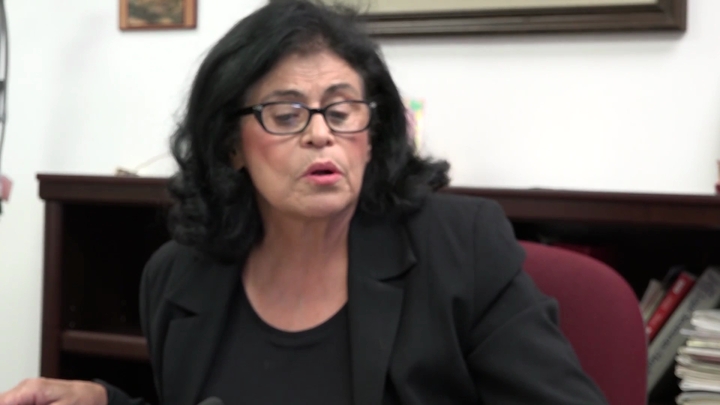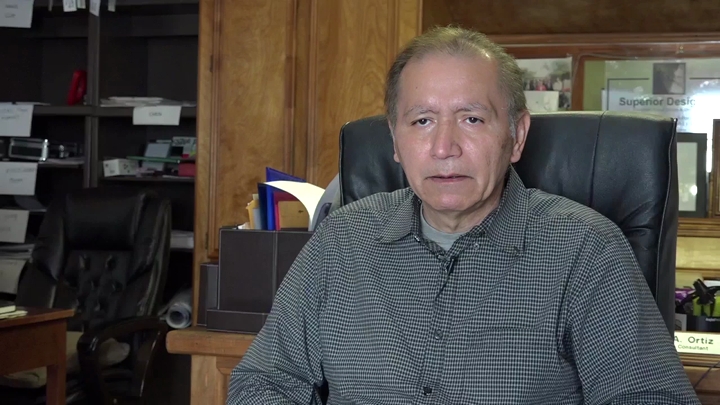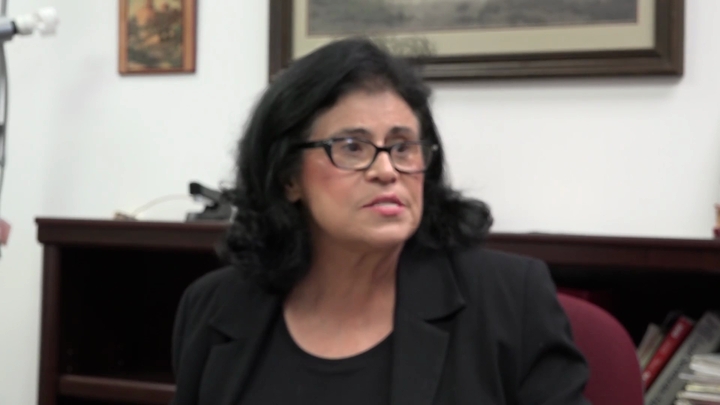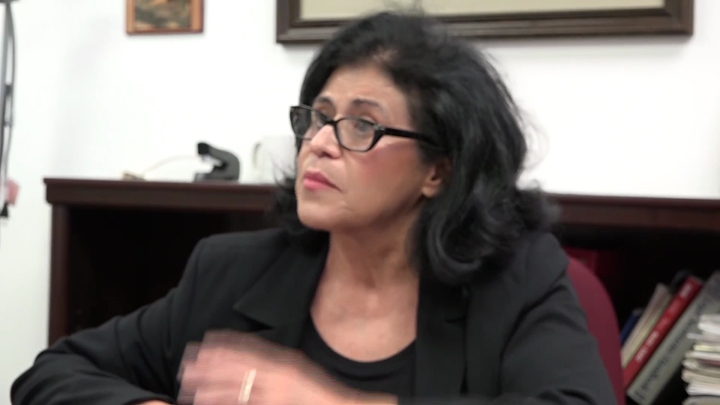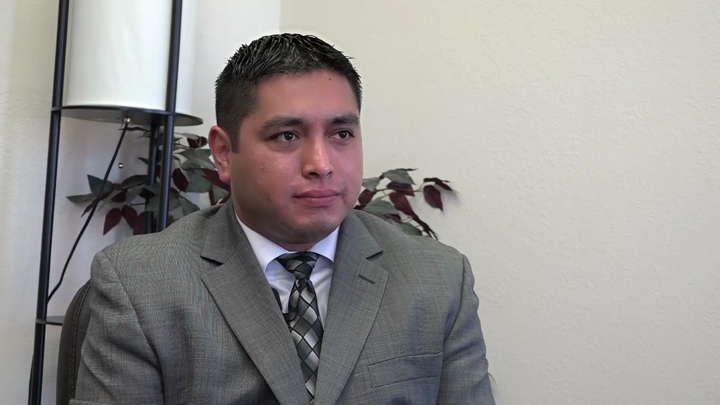Abalos / Discrimination in Schools
sign up or sign in to add/edit transcript
Zapata: After high school did you enter the workforce or did you start school? Abalos: Well, I did. I was already working in high school. So, I continued to work and I started Odessa College. But I did not finish Odessa College until 3 or 4 years later. Then I met my husband and married him. Then, I did not go back to school until the ‘90s? So, my youngest daughter was 3 or 4 years old when I went back and started at UTBB. Zapata: In the mean time, while you were raising your family, I know that you and your husband were very much a part of the community. Can you tell me about what you saw in the community? Any civil rights issues or civil rights movements that you and your husband were involved with? Abalos: Well, I was in a number of community organizations. When I was asked, I usually said yes because I knew there were few minorities in these organizations. So, I wanted to be able to give input. I also ran for the school board. You talked to Vicki Gomez? Okay, I took Vicki’s place. She got out and I went in. So, consistently I would see where minorities got treated differently than Anglos. Whether it was punishment, or whatever. Even today, if you look at the numbers at the alternative center, you will see that their numbers are higher. And is for infractions where others do not go to the alternative center. They keep giving them chances. I know a lot of it has to do with wealth, parent involvement, but it also has to do with color. I would always object to so much of this. When we were passing policies, I would remind those board members – you know, you think it is okay, you think it is okay. Because what if it happens to someone you know, and when it does you are going to want it changed. And every time it is like they want the rules for everyone they know because they know them. Well, yeah. Everyone knows someone and everyone knows the good in someone. That is why when you make policy you need to make sure it is fair and consistent policy, otherwise why do you have it. So, yeah, we saw that a lot. The school discipline problem was a big one. When I was on the school board, I think I had just gotten on, we got complaints from parents of kids going to one of the junior highs. Richard got involved and he addressed the school board and it was an all night meeting just about. Because it was so obvious that the way they were treating the Hispanics was much worse than the way they were treating the Anglos. So, policy changes came about as a result of that. The school board meeting was full of people concerned about the injustices going on at the schools.
| Interview | Interview with Delma Abalos |
| Subjects | Family |
| Family › Marriage | |
| Family › Children | |
| Community Organizations | |
| Race Relations | |
| Race Relations › Anglo-Mexican Race Relations | |
| Race Relations › Skin Color in Race Relations | |
| Discrimination or Segregation › Discrimination or Segregation at School | |
| Education | |
| Education › Higher Education | |
| Class and Status › Class, Status, and Gender | |
| Tags | Gomez, Vickie |
| Abalos, Richard | |
| University of Texas of the Permian Basin (UTPB) | |
| sign up or sign in to add/edit tags | |
| Interview date | 2016-07-14 |
| Interview source | CRBB Summer 2016 |
| Interviewees | Abalos, Delma |
| Interviewers | Moye, Todd |
| Wisely, Karen | |
| Zapata, Joel | |
| Duration | 00:04:14 |
| Citation | "Discrimination in Schools," from Delma Abalos oral history interview with Todd Moye, Karen Wisely, and Joel Zapata, July 14, 2016, Odessa, TX, Civil Rights in Black and Brown Interview Database, https://crbb.tcu.edu/clips/2208/discrimination-in-punishment-at-school, accessed February 19, 2026 |


